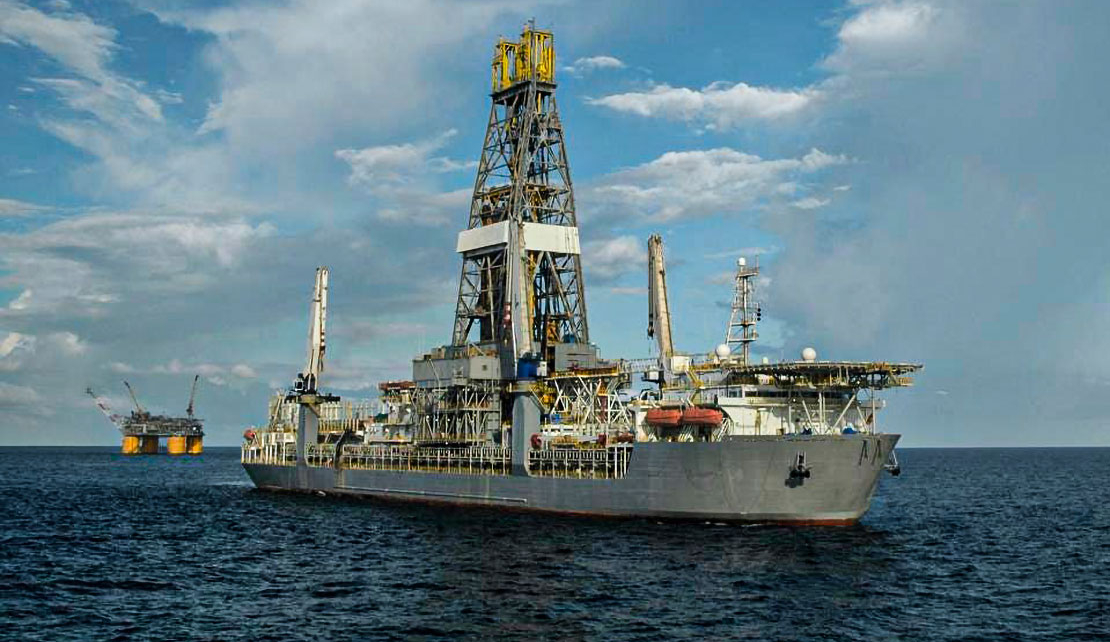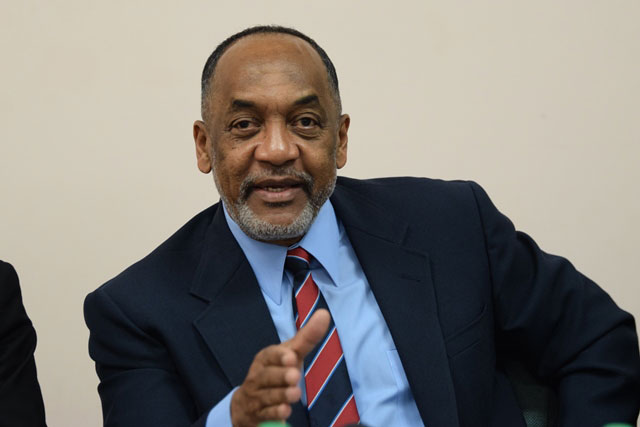CARICOM urged to ensure Guyana’s Offshore oil drilling is safe and environmentally sound

MONTEGO BAY, Jamaica, March 1, 2024 - As the Caribbean region watches with bated breath, hoping the sea currents will mercifully divert the looming disaster from their shores arising from the mysterious oil spill off the coast of Trinidad and Tobago, there is growing concern over the possibility of an accidental oil spill arising from the off-shore oil drilling by ExxonMobil off the coast of Guyana.
In a letter to Belize Prime Minister and then CARICOM Chair John Briceño, former Head of the Environmental Protection Agency, EPA, Dr. Vincent Adams, has asked CARICOM to engage the government of Guyana (GoG) to ensure that its offshore oil operations are carried out in a safe and environmentally sound manner.
Failure to do so, Dr. Adams said it could devastate the region’s economy and environment. He explained that EEPGL, the company set up by ExxonMobil to conduct drilling, exploration and production in Guyana, has concentrated its exploration inside the northern edge of Guyana’s Exclusive Economic Zone (EEZ).

He said In the event of an accidental oil spill, “this puts the potential for transboundary harms closer to several CARICOM Member States than to the Guyana shoreline, Dr, Adams said.
Specifically, we request that:
(1) CARICOM demands that the GoG immediately take actions to enforce the legal requirements of the EIAs and Environmental Permits;
(2) CARICOM demands that the GoG stop EEPGL from dumping hot, toxic and radioactively contaminated produced water into the Caribbean Sea;
(3) CARICOM demands that the GoG reverse its decision to allow unlimited flaring for a small fine and return to the original regulation where “routine flaring or venting is prohibited”; and
(4) CARICOM engages the GoG in ensuring its petroleum extraction laws and regulations are compatible with the 2016 Paris Agreement.
Guyana’s oil fields have been licensed by the Government of Guyana (GoG) to a consortium of EEPGL/Hess/CNOOC1 and operated by EEPGL under a Production Sharing Agreement (PSA) for the Stabroek Tract, dated 27 June 2016. ExxonMobil (XOM) is EEPGL’s parent company and is headquartered at Irving, Texas.
As more oil discoveries are made off the coast of Guyana there are concerns over the measures that have been taken to decrease the possibility of oil spills in the area. He explained that there was need for an unlimited guarantee agreement by ExxonMobil (XOM) in the event of such an occurrence, which could do serious damage to the ecology of Guyana and possibly the wider Caribbean.
The matter of an unlimited guaranteed coverage by ExxonMobil becomes important to ensure that in the event of a disaster, there are sufficient funds available to perform a cleanup of the affected area as well as all attendant considerations.
Former Head of the US Environmental Protection Agency, EPA, Dr. Vincent Adams, has warned that ExxonMobil be mandated to sign an unlimited guarantee agreement, in respect of any cleanup that may arise in the event of an oil spill, or Guyana could be left to pay billions, should such an accident occur.
Dr. Adams explained that the organization with which he is associated, has written to all CARICOM heads outlining the potential for a looming disaster involving all States washed by the Caribbean sea and depending on tourism in the event of an oil spill.
A letter sent to prime minister Mia Mottley of Barbados noted that the “consultancy firm that has done all of XOM’s Environmental Impact Assessments to date in Guyana, indicate that the northwesterly currents of the Guyana territorial sea would push even a small oil spill to the southern Jamaican coast.”
“Even a small oil spill would bespoil the Caribbean Sea and threaten the livelihoods of fishers and the tourism industry, not to mention the harms to marine life and ecosystems. We draw to your attention the limited capacity in the Guyanese regulatory bodies to exercise oversight of the offshore oil industry, which imperils the entire Caribbean.
We noted that Guyana's combined annual oil revenues generated by the sale of its 12.5% share of produced oil and the 2% royalty received from ExxonMobil is half a billion USD, projected to rise to well-above USD 1 billion/year in a couple of years.
CARICOM should compare that sum with the value of beach-based tourism in the Caribbean Islands at potential risk from oil spills in the Guyanese Exclusive Economic Zone (EEZ). Jamaica’s tourism alone is around USD 1.3 billion. Neither Guyana nor XOM is carrying insurance against the consequences of massive oil spills.
In fact the potential is even more dire as every two days there is close to a million barrels of oil being shipped through the Caribbean sea from Guyana to the US by XOM, and according to Dr. Wade, this is expected to increase to one million barrels every day as the Guyana offshore wells increase their production.
As the Caribbean braces for the potential devastation to its tourism industry, the silence from the recent CARICOM heads of government conference on the recent Tobago spill raises eyebrows.
The region's stakeholders, from environmental activists to affected fishermen, demand accountability and clarity on cleanup responsibilities.
The Caribbean's tourism, the lifeline for many islands, hangs in the balance, awaiting answers and action amidst this unprecedented environmental threat.
-30-
